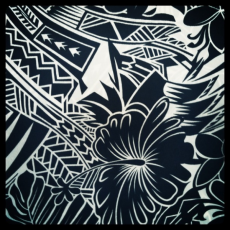New report on Samoan understandings of primary prevention of violence against women
Wed 20 Jan 2016
The Ministry for Women has published a report on some New Zealand-based Samoan people's understandings of primary prevention of violence against ...

The Ministry for Women has published a report on some New Zealand-based Samoan people's understandings of primary prevention of violence against women.
The report, A malu i 'āiga, e malu fo'i i fafo: Protection for the family, protection for all, considers the primary prevention of violence against women and girls and the context of fa’aSamoa (Samoan culture), drawing on Samoan principles such as the vā tapuia, feagaiga, fa’asinomaga and malupuipuia. It looks at intimate partner and sexual violence against Samoan women by any perpetrator.
The research used the fa’afaletui methodology, as a specifically Samoan approach. Seven focus groups with Samoan people were held in Wellington and Auckland. A total of 49 people participated, including men and women from 20 to 80 plus years, from different religious, gender and educational backgrounds. Most focus group discussions were held in Samoan and transcripts were translated into English.
The authors found, "Research participants identified both protective factors and risk factors for violence against Samoan women. Some of these factors were described as internal to fa’aSamoa while others were described outside the context of fa’aSamoa. Fa’aSamoa concepts were more likely than those not viewed as fa’aSamoa to be described by participants as both protective factors and risk factors."
The report states, "The protection of Samoan women and girls is inherent in traditional Samoan culture (traditional fa’aSamoa) but a lack of understanding of what this constitutes, non-observance and breaches put Samoan women and girls at risk of violence."
Based on the findings, the report proposes five key principle statements for inclusion in strategies for primary prevention of violence against Samoan women:
- "Respectful and open discussions and communication strategies are employed in family, church and other community settings; and all are given equal opportunity to have a say and speak honestly, irrespective of age, gender, education, class difference and religious background
- Samoan youth have opportunities to strengthen understandings of their faasinomaga together with peers, elders, and community leaders
- Education initiatives are relevant to Samoan families and Samoan community contexts
- Samoan community-based preventative initiatives are led and driven by active members of the Samoan community (with support and knowledge from local service providers) and continue to use community leaders (including matai and faifeau) and local community champions (advocates) to promote, drive and shape them
- Samoan community role models, young and old, who are recognised and respected in their community, model respectful relationships."
It has previously been acknowledged that there is limited research and information available for some population groups, including Pacific women. This report seeks to generate further in-depth discussion and to contribute to New Zealand’s evidence base about cultural attitudes to violence prevention. The report also aims to assist policy makers and practitioners to design and implement effective policies, actions and strategies for primary prevention of violence against Samoan women.
Related resources
Pacific peoples, violence, and the Power and Control Wheel (Rankine et al, 2015)
Wāhine Maori, Wāhine Ora, Wāhine Kaha - Preventing violence against Māori women (Ministry of Women's Affairs, 2015)
Pasefika Proud Programme of Action: Addressing violence in Pasefika families and communities 2014-2017 (Ministry of Social Development, 2014)
Current Thinking on Primary Prevention of Violence Against Women (Ministry of Women’s Affairs, 2013)
O le tōfā mamao: A Samoan Conceptual Framework for addressing family violence (Ministry of Social Development, 2012)
Samoan pathways to the prevention of sexual violence (University of Auckland, 2010)
Media
More talanoa: Talking about family violence, Radio NZ, 06.04.16
Samoan culture used to prevent violence against women, Radio NZ, 16.12.16
Hopes new NZ strategy can combat Samoan family violence, Radio NZ, 15.12.16
Tough talk needed for whanau safety, Rotorua Daily Post, 08.08.15
Work underway on anti-violence policies, Radio NZ, 29.05.2015
Report shows importance of whānau and community, Beehive, 26.02.2015
Image: #Elei #uliuli #samoa by Fotu Vaai. Licence: Attribution-NoDerivs 2.0 Generic (CC BY-ND 2.0)
Image: Fotu Vaai


